Share
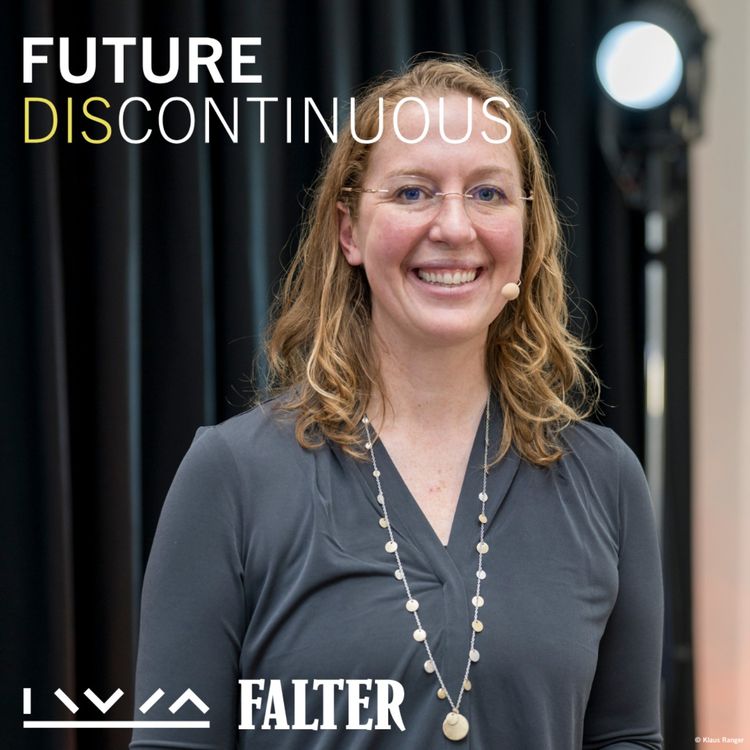
Future Discontinuous
Do we have to destroy the environment to save it, Julie Klinger?
It is no news that humanity will have to extract enormous amounts of rare earths and other critical raw materials to move away from carbon-based economies. In episode four of Future Discontinuous, hosts Misha and Eva invite Julie Klinger, who studies the geopolitics of resource usage, to discuss the pitfalls of the green energy transition, whether we see the emergence of a new resource colonialism, and why states and mining companies alike are turning their gaze to outer space in the global race for rare minerals.
Julie Klinger is an associate professor of geography and spatial sciences at the University of Delaware. She publishes on rare earth elements, natural resource use, the energy transition, and outer space, and is the author of the award-winning book Rare Earth Frontiers: From Terrestrial Subsoils to Lunar Landscapes (Cornell University Press, 2018).
More episodes
View all episodes
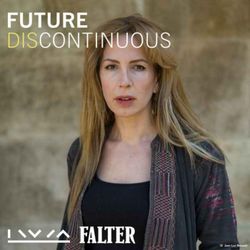
4. What Can We Learn from Genghis Khan, Ayşe Zarakol?
36:49||Season 3, Ep. 4In this episode of Future Discontinuous, hosts Misha Glenny and Eva Konzett are joined by international relations scholar Ayşe Zarakol to rethink where global order comes from—and why it may now be coming apart. Drawing on her book Before the West, Zarakol challenges the familiar story that modern international politics begins with Europe and the Peace of Westphalia. Instead, she traces earlier Eurasian world orders built around empires rather than nation-states, focusing on the Mongol and Chinggisid models of sovereignty that organized power around rulers, households, and fluid realms rather than fixed borders. The discussion explores how these Eastern orders structured political competition across Asia, how their influence reached Europe through rivalry with the Ottomans, and how ideas of centralized authority took hold long before the modern state system. Shifting the conversation to the present, the trio examines how stigma and hierarchy continue to shape the behavior of both rising and declining powers, from China and Russia to Europe and the United States. Are today's turbulences best understood through familiar 20th-century analogies, or do the upheavals of the 17th century—marked by climate stress, technological disruption, and prolonged instability—offer a more unsettling parallel? As strongman politics resurges and the nation-state itself comes under pressure from digital platforms and concentrated private power, the episode asks what kinds of order might emerge next and how long we may have to navigate a world without one. Ayşe Zarakol is a professor of international relations at the University of Cambridge. The main themes of her research are East-West relations and social hierarchies in world politics, problems of modernity and sovereignty, and rising and declining powers. She is the author of Before the West: The Rise and Fall of Eastern World Orders (Cambridge University Press, 2022), which has won six prestigious awards. In 2024, Zarakol was elected to fellowship in the British Academy and the Academia Europaea.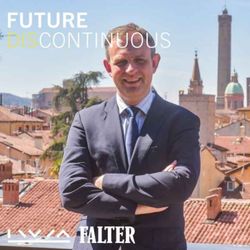
3. Can history explain Putin’s war, Sergey Radchenko?
48:05||Season 3, Ep. 3Few historians illuminate the inner workings of Soviet and Russian foreign policy with the clarity and archival depth of Sergey Radchenko. Drawing on unprecedented access to Communist Party documents, Radchenko has rewritten key chapters of the Cold War, tracing the ambitions, insecurities, and delusions that drove leaders from Stalin to Gorbachev, which still echo in Vladimir Putin’s Russia today. In this episode of Future Discontinuous, hosts Misha Glenny and Eva Konzett explore Stalin’s competing quests for security, resources, and legitimacy, Khrushchev’s nuclear brinkmanship from Berlin to Cuba, and the unraveling of Soviet power in Eastern Europe. Together with their guest, they examine how China emerged as Moscow’s greatest geopolitical nightmare, how misunderstandings shaped the end of the Cold War, and why Russia’s 2022 invasion of Ukraine has become a catastrophic gamble for all involved. They also unpack early, little-known peace negotiations between Kyiv and Moscow—and what recent diplomatic maneuvers reveal about the shifting global balance of power. Sergey Radchenko is a Russian-British historian who currently teaches at the Henry Kissinger Center for Global Affairs at Johns Hopkins University. Radchenko grew up on Sakhalin Island in Russia’s Far East before studying in the United States and the United Kingdom. He is the author of several books about the Cold War and has published extensively on nuclear history and Russian and Chinese foreign and security policies. His latest book, To Run the World (Cambridge University Press, 2024), won the prestigious Lionel Gelber Prize in Canada this year. He regularly writes for publications such as The Guardian.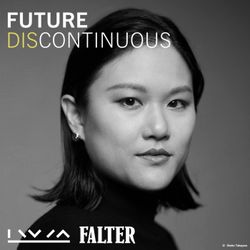
2. Can we resist the AI empire, Karen Hao?
46:13||Season 3, Ep. 2There is no shortage of critical commentary on the dizzying pace of developments in artificial intelligence. Yet, few do it as astutely as Karen Hao, whose award-winning book, Empire of AI, unveils the inner workings of OpenAI and the tech sector more broadly, shining a light on an industry marked by both grandiose proclamations and notorious secrecy. In this episode of Future Discontinuous, hosts Misha Glenny and Eva Konzett revisit some of Silicon Valley‘s foundational myths and trace the ever-increasing impact of AI on our lives. Together with their guest, they examine how OpenAI has become the multi-billion-dollar empire it is today, discuss the differences between AI doomers and AI boomers, and take stock of the environmental costs of the data centers mushrooming around the globe. Karen Hao is an award-winning journalist and author covering artificial intelligence. Having previously worked as an application engineer for a digital startup, a foreign correspondent for The Wall Street Journal covering American and Chinese tech companies, and a senior AI editor at MIT Technology Review, Hao regularly writes about tech and AI for high-profile publications like The Atlantic. She also leads the AI Spotlight Series, a program that trains journalists to cover AI. Her 2025 book, Empire of AI, was an instant New York Times bestseller.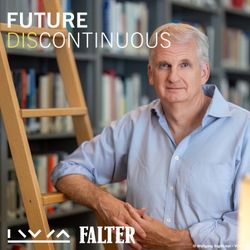
1. What is the meaning of freedom, Timothy Snyder?
56:37||Season 3, Ep. 1Often considered ‘the value of values,’ freedom is increasingly interpreted in negative terms as the absence of interference, especially by prominent figures on the right. Historian and author Timothy Snyder argues that in order to achieve true freedom, we must ask about the moral and political structures required for human societies to flourish. In this wide-ranging conversation with Snyder, hosts Misha Glenny and Eva Konzett explore topics such as the collapse of the Soviet Union, the many shades of freedom, and the importance of the humanities in helping us navigate the present. Timothy Snyder holds the Chair in Modern European History at the Munk School of Global Affairs & Public Policy at the University of Toronto. Since 2008, he has been a permanent fellow at the Institute for Human Sciences in Vienna, where he leads the Institute's Ukraine programs. Snyder is the author of numerous critically acclaimed books, including Bloodlands: Europe Between Hitler and Stalin (2010), On Tyranny: Twenty Lessons from the Twentieth Century (2017), and, most recently, On Freedom (2024).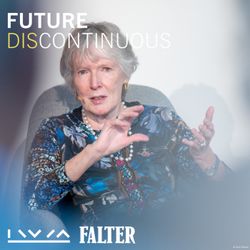
6. How new is the new world order, Margaret MacMillan?
39:21||Season 2, Ep. 6We are witnessing changes in the world order which many thought we would never live to see. The US, long a bedrock of democracy, appears to go heading down an anti-democratic path. Traditional alliances are falling apart, while longtime enemies are drawing closer together. Meanwhile Europe, long a central player in geopolitics, seems increasingly sidelined in international negotiations.To make sense of this unfolding new world order, Misha Glenny and Eva Konzett are joined by renowned Canadian historian Margaret MacMillan who has studied great power conflicts, war, and the international order for decades. In this episode, she draws parallels between past and present conflicts and unpacks the historical context and potential consequences of this global power reshuffle. Margaret MacMillan is emeritus Professor of History at the University of Toronto and Professor of International History and the former Warden of St. Antony's College at the University of Oxford. Her books include Women of the Raj (1988, 2007); Paris 1919: Six Months that Changed the World (2001) for which she was the first woman to win the Samuel Johnson Prize and Nixon in China: Six Days that Changed the World (2007). Her most recent book is War: How Conflict Shaped Us (2020) which was in The New York Times’ Ten Best Books of the Year. She is a Fellow of the Royal Society of Literature, the Royal Society of Canada, the Royal Geographical Society of Canada, and Honorary Fellow of the British Academy. MacMillan is also a Trustee of the Imperial War Museum and a Board Member of the IWM.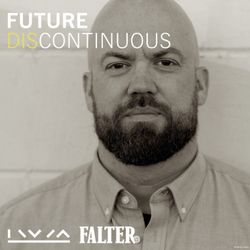
5. Are the tech bros taking over the White House, Eoin Higgins?
31:02||Season 2, Ep. 5Tech billionaires are exerting an enormous influence on the current Trump administration. It is not just Elon Musk and DOGE who are reshaping the American state. Behind the scenes, figures like Peter Thiel, Marc Andreessen, and David Sacks are pushing an anti-regulation agenda and an anti-democratic entrepreneurial vision of politics.In this conversation with American journalist Eoin Higgins, Misha Glenny and Eva Konzett explore how the relationship between the tech industry and US politics evolved and delve into the ideologies uniting the so-called tech bros and their strategic goals for politics in the US and Europe. Eoin Higgins is an American journalist and historian covering tech, US, and world politics. His work has appeared in The New York Times, The Washington Post, The Intercept, The New Republic, The Nation, and more. He also writes for Morning Brew’s tech newsletter IT Brew. Higgins is the author of Owned: How Tech Billionaires on the Right Bought the Loudest Voices on the Left.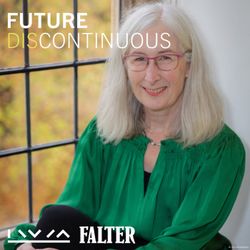
4. What can we learn from the Peasants' War of 1525, Lyndal Roper?
45:30||Season 2, Ep. 4We are living through a time of immense upheaval, with geopolitical, social, and economic shifts reshaping our world every day. However, this is not the first time humanity has faced such dramatic changes. In this episode, Misha Glenny and Eva Konzett are joined by historian Lyndal Roper to take us back 500 years to the Peasants' War of 1524–25 – the largest armed rebellion in Europe before the French Revolution.Inspired by Martin Luther and the Reformation, peasants across the German-speaking world fought for a radical new vision of freedom. Roper brings to life the peasants' fears, joys, and struggles while exploring how they rose up against their lords, what ideals fuelled their rebellion, and, crucially, what their fight can teach us for today's crises. Lyndal Roper is Regius Professor of History at the University of Oxford, specializing in the history of the Reformation and the early modern period in Germany. She is the author of a widely acclaimed biography of Martin Luther. Her new book Summer of Fire and Blood (German title: Für die Freiheit) explores the Peasants' War of 1525.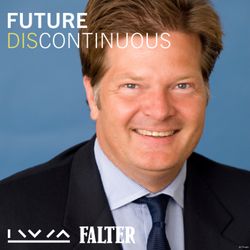
3. Is Trump preparing a constitutional coup, Mark Medish?
41:12||Season 2, Ep. 3In this episode of Future Discontinuous, we dive deep into the political turmoil following Donald Trump’s inauguration as the 46th President of the United States. From overhauls in US domestic policy to disruptions in global diplomacy, this episode breaks down Trump‘s dramatic reshaping of the world order. Together with Mark Medish, policy consultant and former White House official, hosts Misha Glenny and Eva Konzett examine whether the Trump administration’s actions amount to a constitutional coup, assess the resilience of America’s checks and balances, and discuss the chainsaw Elon Musk is taking to the American state.Mark Medish is an American lawyer and policy consultant with extensive experience in government and international affairs. During the Clinton Administration, he served at the White House as Special Assistant to the President and Senior Director on the National Security Council , as well as Deputy Assistant Secretary for International Affairs at the U.S. Treasury. He has also held senior roles at USAID and the United Nations Development Programme (UNDP). Medish is Director and Vice Chair of Panterra, a strategic consultancy, and founder of Keep Our Republic, a nonprofit organization dedicated to civic education and democratic governance. Medish is also member of IWM’s Board of Trustees.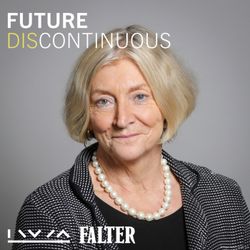
2. Are Ultra-Processed Foods the New Silent Killers, Rosie Boycott?
41:06||Season 2, Ep. 2Ultra-Processed Foods lie at the heart of a global increase in a variety of chronic and fatal diseases from cancer to Type 2 Diabetes. The food industry has been pouring billions into convincing governments not to regulate these additives which make everything from baby food to burgers addictive, persuading customers to return for more. Rosie Boycott, a highly respected British publisher and journalist, has been studying the politics and science of food since she started farming two decades ago. In a revealing conversation with Eva Konzett and Misha Glenny, Boycott explains why Ultra Processed Foods are so catastrophic for health and environment, about how the food industry borrowed its lobbying strategy from tobacco, and how we can change our eating habits for the planet is to survive. Rosie Boycott is a member of the House of Lords and has a distinguished career as a journalist, publisher, and author. She served as the editor-in-chief of several British newspapers and co-founded the feminist magazine Spare Rib. Beyond her media career, Boycott is a well-known food activist, specialising in food and environmental politics and legislation. She was also chair of the London Food Board and advised the city's government on sustainable food policy.